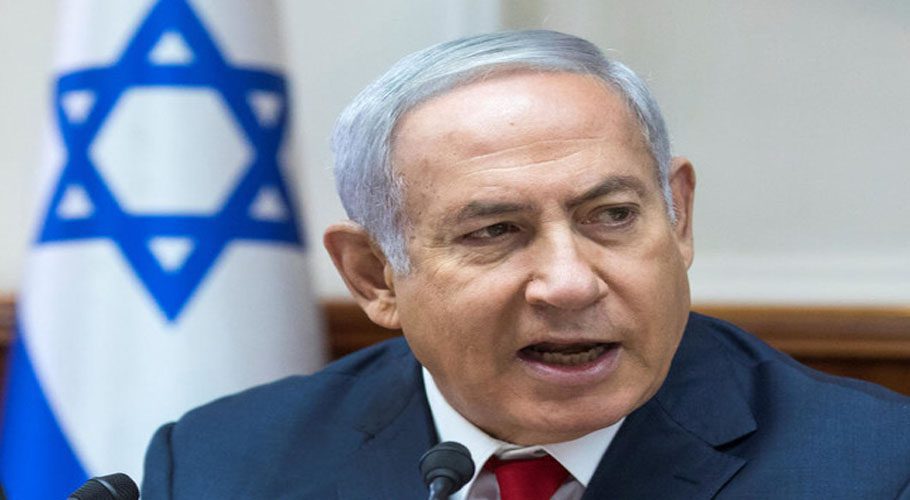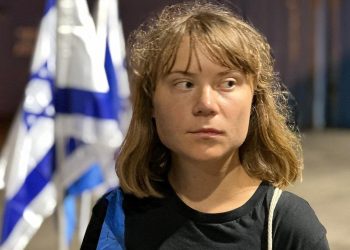People in the southern Indian state’s Kerala are flocking to public spaces to join protests and candlelight vigils in solidarity with the Palestinians.
Political parties, human rights advocates, cultural associations, and Muslim organizations have all staged demonstrations and events in Kerala with the goal of denouncing Israel for its alleged war crimes and demanding a quick ceasefire in the beleaguered enclave.
At a rally organized by his Communist Party of India (Marxist) last week in Kozhikode, Kerala’s Chief Minister Pinarayi Vijayan welcomed over 50,000 attendees from a wide range of political backgrounds.
In his speech, Vijayan unleashed a scathing attack on Israel and Indian Prime Minister Narendra Modi’s support of the country’s far-right Zionist regime.
“India is the biggest consumer of weapons manufactured in Israel. Indian taxpayers’ money should not be given to kill innocent Palestinian children. So India should scrap all military deals with Israel and sever diplomatic ties with it,” he said.
“Israel is one of the biggest terrorist countries. The Indian government’s decision to abstain from a UN voting that called for a ceasefire in Gaza was shameful. The ‘Zionist’ bias of the current rulers of India was not a surprise at all,” he added.
The largest-ever Palestine solidarity march in India took place in Kozhikode on October 26. The Indian Union Muslim League, a regional party, invited around 200,000 people to demonstrate against the war in Gaza by taking to the streets.
A sympathy demonstration has also been scheduled on November 23 by the Indian National Congress, the state’s principal opposition party in the southern Indian region.
So what makes Kerala so sensitive to the Palestinian cause?
According to KM Seethi, a former professor of international affairs at Mahatma Gandhi University in the Keralan town of Kottayam, “the Palestine issue garners widespread support in Kerala because of the historical connections between the region and West Asia, particularly the Arab world.”
Seethi said the migration from Kerala to the Gulf beginning in the early 1980s exposed them to the struggles of the Palestinian people, leading to a “natural sympathy” for their cause. Nearly 3.5 million people from the state work in the Middle East, forming a majority of the Indian expats in the region.
But there is more.
Kerala is an anomaly in India, which ranks low on most human development indicators, including those related to health and education. It has the highest Human Development Index among all of India, at 0.792. Kerala has a higher literacy rate—93.91 percent—than the national average of 74%, according to the 2011 census.
Long before the Gulf migration began, public intellectuals in Kerala had been following the sociopolitical developments in the tumultuous Arab world.
One such intellectual was Vakkom Mohammed Abdul Khader Moulavi, founder of Swadeshabhimani (The Patriot) newspaper way back in 1905. An expert in West Asian politics, he used his newspaper to educate people about issues concerning Palestine and other parts of the Middle East.
It appears that these efforts paid off in 1930 with the release of the first Malayalam book on Palestine. The book, Palestine Prashnam (The Palestine Problem), was written by journalist and sociopolitical observer Muhammed Kannu. It was published 18 years before Israel was founded and 49 years before Edward Said wrote The Palestine Question in 1979, according to M V Bijulal, chair of the Center for West Asian Studies at Mahatma Gandhi University.
Palestine remains a non-divisive issue in the state, mainly due to an unambiguous stand on it by its prominent political parties – the Indian National Congress, its closest ally the Indian Union Muslim League, and the Communist Party of India (Marxist).
All these parties have criticised the federal Hindu nationalist government, led by Prime Minister Narendra Modi’s Bharatiya Janata Party (BJP), for supporting Israel and abstaining from a recent United Nations vote calling for a ceasefire in Gaza. In his social media posts and speeches, Modi has repeatedly called Israeli leader Benjamin Netanyahu a “close friend” while his government has built close business and strategic India-Israel ties.


































